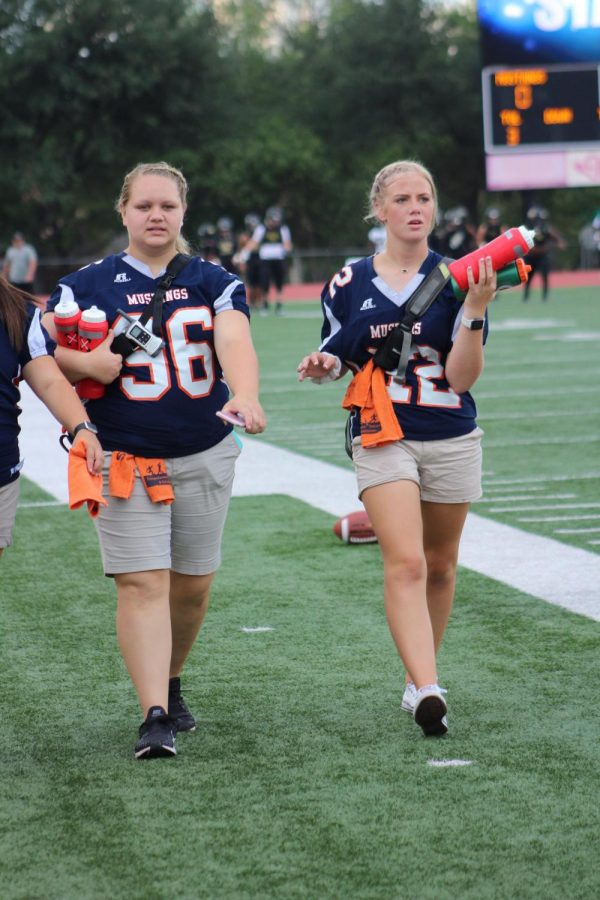Trainers: More than just water boys
Nancy Lozano
While the varsity football team warms up, junior Chloe Clearfield and senior Lindsay Cole get ready for the game.
November 14, 2018
Whenever a football player is injured, a swarm of trainers come rushing to his aid. From a spectator’s perspective, it looks like student trainers do little more than provide water to the team, but their jobs are much more than that.
“Trainers help prevent and treat injuries,” senior Lindsay Cole said. “Hydration is a big factor in what we do, but we’re not just water boys! We tape the players up before practice and games to prevent injuries from occurring and assess injuries that occur on the field.”
Student trainers work with adult trainers to learn basic injury assessment and treatments.
“We are taught basic injury treatment before our first Freshmen football game,” Cole said. “Most of the major injuries are treated by our head trainers, and over time we student trainers learn how to deal with those same injuries.”
Some injuries, such as a sprain or strain, can be quickly dealt with using bandages and braces. Others, such as possible concussions and broken bones, require the player to leave the game. Trainers are tasked with the difficult role of determining various injuries in a short amount of time and learning how to assist with each injury.
“Being a trainer is hard work and takes a lot of time, but it’s so rewarding,” senior Carley Calkins said. “There’s always something new to learn every day with different injuries.”
A typical week for trainers consists of four football practices until 4 p.m. and ends with a game.
They are required to report to the training room an hour before the team does. They help set up the field, engage in pre-game procedures, and tape up any player who may need taping before the game starts. Afterwards, they help clean up the training room before calling it a day.
“We’re constantly up at the school with players,” Calkins said. “Trying to find time to fit in homework as well as having a social life, it gets very hectic. In the end, it’s totally worth it.”
The trainers’ season doesn’t end with the end of the football season. During the spring semester, each trainer is assigned to a different sport.
“I always feel accomplished when I know I get to help someone,” Cole said. “I don’t want to see my friends get hurt, but the feeling of helping them get back to normal makes me feel amazing.”

